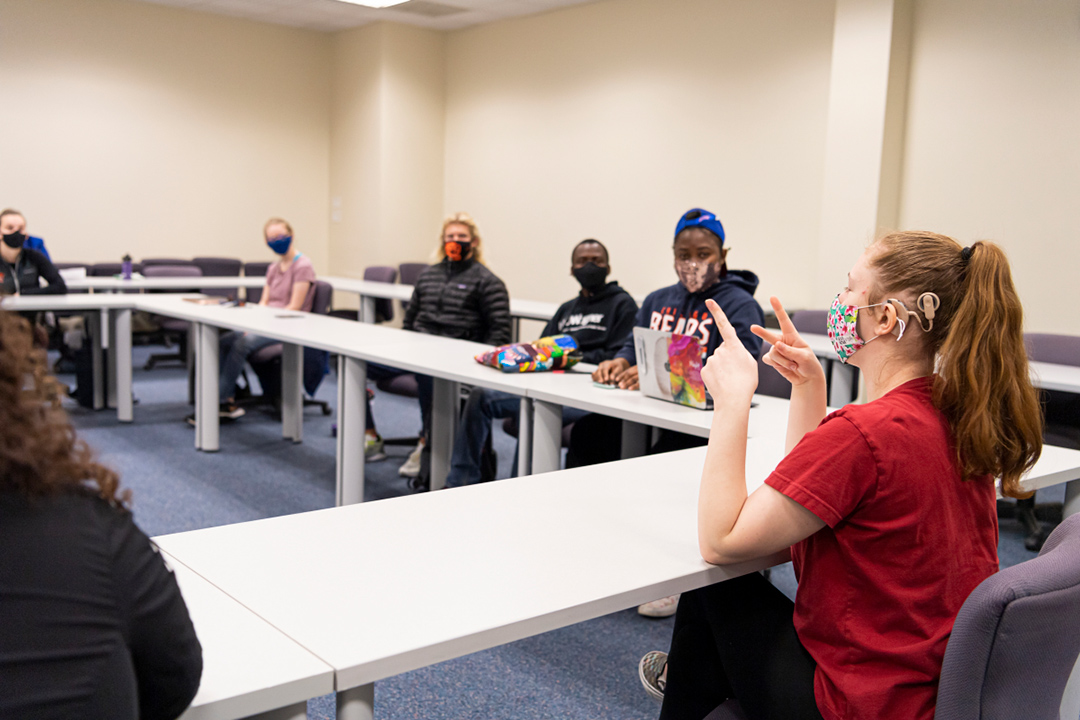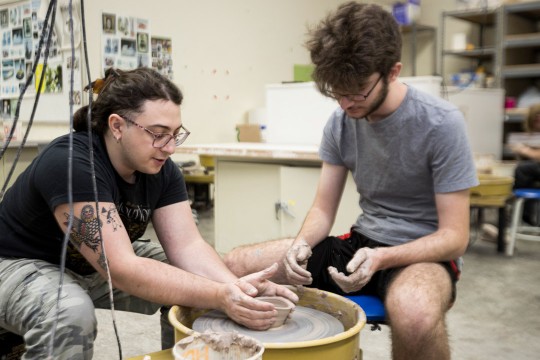RIT/NTID establishes new bachelor’s degree program in community development and inclusive leadership
Interdisciplinary degree program will admit first students in fall 2022
Mike Guinto
RIT’s National Technical Institute for the Deaf has received state approval for a new bachelor’s degree in community development and inclusive leadership. Its first students will be admitted in fall 2022.
RIT’s National Technical Institute for the Deaf has received approval from the New York State Education Department for a bachelor’s degree program in community development and inclusive leadership.
The new program will admit its first students in fall 2022 and is an interdisciplinary degree in which students will gain dialogue, leadership, interpersonal, research, and data management skills needed to become dynamic leaders at the helm of 21st-century organizations.
Led by NTID’s Department of Liberal Studies, the degree is a multidisciplinary partnership with RIT’s Saunders College of Business, College of Liberal Arts, College of Health Sciences and Technology, and RIT’s School of Individualized Study.
Deaf, hard-of-hearing, and hearing students will be prepared to assume entrepreneurial, managerial, and advocacy leadership roles in government, public, private, and educational organizations. Students will graduate with a leadership eportfolio that demonstrates qualitative and quantitative research acumen, grant writing and leadership experience, multicultural competency, and social media management skills as well as a strong foundation in leadership theory and best practices in community development.
“These transferable and sought-after skills will ensure LEAD graduates leave RIT prepared for leadership positions and ready to meet the demands of rapidly changing traditional workplaces and community organizations,” said Gerry Buckley, NTID president and RIT vice president and dean.
As they progress through the program, LEAD students will build upon a core curriculum by pursuing a concentration in one of six areas: deaf leadership, business management, psychology, public policy, community health, or political science. Students will be exposed to qualitative and quantitative research activities and will benefit from a required experiential learning opportunity. LEAD graduates will be prepared to either enter the workforce or enroll in a graduate program.
“The LEAD program will welcome deaf, hard-of-hearing, and hearing students, and faculty will model inclusive communication strategies and establish a classroom culture that supports individual responsibility to ensure that each person is accountable in understanding and being understood by others,” said Jess Cuculick, chairperson of NTID’s Department of Liberal Studies. “Depending on the concentration chosen, students will be able to broaden their understanding of domestic and international community development and inclusive leadership through coursework and experiential learning opportunities.”
A sign language explanation of the degree program is available.









